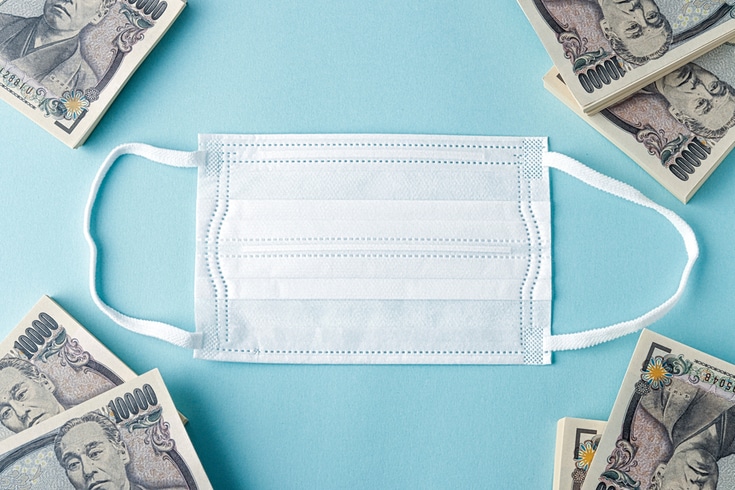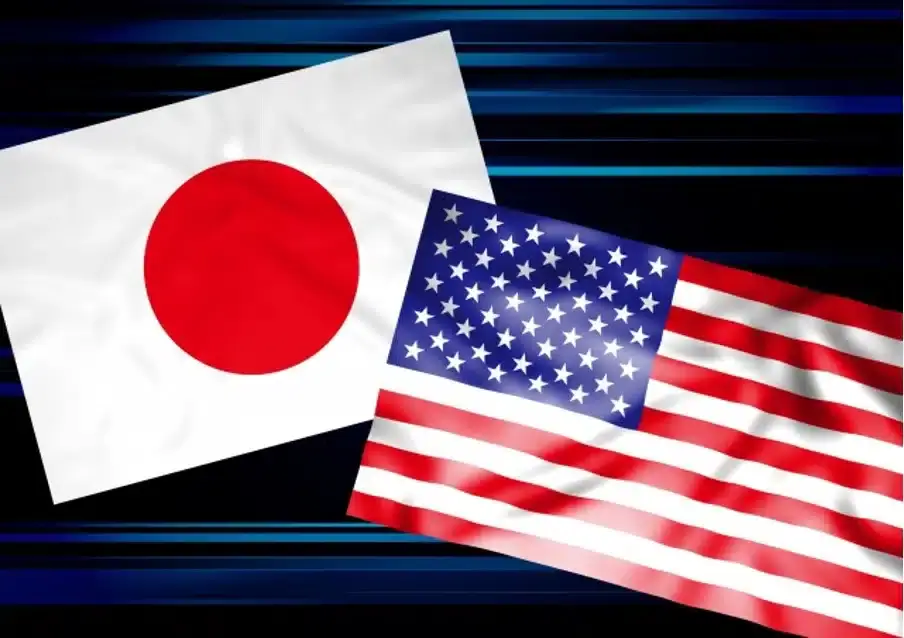An In-depth Explanation of Why 'Comp Gacha' is Illegal and its Relationship with the 'Japanese Prize Display Act'

In recent years, the number of people making in-app purchases in smartphone games (social games) has increased, and the market size has grown to exceed 1 trillion yen. The profit margin is said to exceed 40%, making it an attractive market for game developers.
The growth of this social game market is supported by a system called “gacha”, where you can acquire personalitys and items that can be used in the game.
However, a system called “complete gacha” is considered illegal, and caution must be exercised when developing games.
In this article, we will explain in detail why “complete gacha” is illegal, the reasons and background for this, and its relationship with the Japanese Act against Unjustifiable Premiums and Misleading Representations.
What is “Complete Gacha”, a controversial system that became illegal?
“Complete Gacha”, also known as “Comp Gacha”, is a type of in-game purchase system used in online and social games.
The term “Gacha” refers to a system where game players (consumers) can acquire personalitys or items. As items are supplied randomly, which item a consumer can obtain is left to chance.
“Comp Gacha” is a system where, by collecting specific items through the Gacha system, players can obtain a new, different item. The item obtained in this way often has a high rarity, and is referred to as a “rare item”.
The personalityistic of Comp Gacha is that players must collect specific types of items through Gacha, which is governed by chance. Therefore, to obtain a rare item, players often have to use the Gacha system multiple times.
Social Issues Caused by Comp Gacha
As mentioned above, Comp Gacha requires players to use the Gacha system multiple times, which is governed by chance. Since rare items are set to be desirable to everyone, such as activating powerful effects in in-game battles, there have been cases where people were enticed by the chance of obtaining these items and made high-cost in-game purchases.
Online games can be easily accessed by young people, students, and minors with low income. Because they use in-game virtual assets or credit card payments without using cash, there have been numerous cases where people have spent hundreds of thousands of yen without realizing it, leading to social issues.
However, in response to consultations from platform operators about these issues, the Consumer Affairs Agency initially responded that there was no illegality in Comp Gacha.
On the other hand, the number of consultations with consumer centers about in-game purchases through Gacha increased, and criticism from the media intensified.
Therefore, in April 2012, the Platform Liaison Council, composed of major social game companies, first agreed to self-regulate, such as setting a usage limit for young users. In May of the same year, they established the “Complete Gacha Guidelines” and quickly announced a policy to abolish Comp Gacha entirely.
The Consumer Affairs Agency’s View
In response to public opinion, in May 2012, the Consumer Affairs Agency clarified for the first time that Comp Gacha was in violation of the Japanese Act against Unjustifiable Premiums and Misleading Representations (景品表示法). From July of the same year, they began to apply this law to Comp Gacha.
In the following, we will explain in detail what the Act against Unjustifiable Premiums and Misleading Representations is, and how Comp Gacha will be regulated by this law.
What is the Japanese Premiums and Representations Act?
The Japanese Premiums and Representations Act (hereinafter referred to as the “Act”) is a law designed to regulate the false representation of product services, prices, quality, etc., and to control the maximum and total amount of premiums, among other things. This is to protect the interests of consumers to independently and rationally choose products and services, and to prevent unhealthy competition among businesses.
For example, if horse meat is sold as beef, or if a 10 million yen winning campaign is held to promote chewing gum, unfair representations and excessive premiums can negatively affect consumers’ product choices. The Act prevents these, enabling consumers to make appropriate product choices.
The Act broadly regulates premiums and representations. The “complete gacha” is regulated by the premium regulation.
Premium Regulation that Governs Complete Gacha
Premium regulation is a measure to prevent consumers from being disadvantaged by being misled by excessive premiums offered by businesses.
Generally, premiums refer to extras or prizes, but under the Act, “premiums” refer to those that meet the following three requirements (Article 2, Paragraph 3 of the Act).
- As a means to attract customers,
- Provided in conjunction with the transaction of goods/services supplied by the business,
- Goods, money, or other economic benefits
Penalties for Violations
If the value of the premium is excessive, it will be in violation of the Act.
If this is suspected, the Consumer Affairs Agency will conduct an investigation. If the investigation confirms the violation, certain orders, such as a prohibition on the provision of the premium, will be issued to the business that provided the premium.
If the business does not comply with the order, it may be subject to imprisonment for up to two years, a fine of up to 3 million yen, or both.
What is “Card Matching”, which is closely related to “Complete Gacha”
“Card Matching” refers to “the provision of prizes through a lottery that uses a method of presenting a specific combination of different types of tokens displaying two or more types of personalitys, pictures, symbols, etc.” (Japanese Prize Restriction Notice Article 5).
In other words, cases where you collect all the specified items from products that contain random items in a gacha-style, and receive a prize when all are collected, fall under “Card Matching”.
Card Matching is completely prohibited by the Japanese Prize Display Law, regardless of the maximum or total amount of prizes.
On the other hand, for example, if all Complete Gacha were free, it would not be considered a “transaction of goods/services provided by the business operator”, so the items obtained through Complete Gacha do not fall under “prizes”.
Also, in cases where the consumer can specify which item to buy, not in a gacha-style, for example, if you buy all of A to E, you get a rare item X, it is not random and does not fall under “lottery”.
Furthermore, in the case of “collecting 5 of A”, it does not fall under “presenting a specific combination of different types of tokens”.
Therefore, all of these do not fall under “Card Matching”, and it is possible to carry them out legally.
So, why was Complete Gacha judged to be illegal? We will explain the reasons below.
The mechanism of Card Matching and the reason for its complete prohibition
For example, let’s say potato chips containing random cards of different types A, B, C, D, E, F, G are being sold. The card itself falls under “prizes”, but it is inexpensive and not excessive, so it is not illegal.
However, if there is a system where you can get another prize by collecting two or more specific cards, it falls under “Card Matching” and becomes illegal. In other words, it is random which of A to G is included, and it is subject to chance, so it can be said to have the nature of a “lottery”.
In fact, in the previous example, the probability of getting all at once is
7/7×6/7×5/7×4/7×3/7×2/7×1/7=5,040/823,543
which is about 0.6% when converted to a percentage, a low probability.
And in the process of completing, the first card that came out is A, and gradually, cards other than A, cards other than AB, cards other than ABC… the target becomes narrower, and it becomes difficult to collect all the items.
However, because the target items are easy to get at the beginning, it is easy to think “I might be able to do it”. This easily creates a psychological state of “next time, next time…”, which can be said to stimulate a gambling spirit.
Furthermore, it was reported that the probability required for completion was manipulated, and it was programmed to be a system that was difficult to collect.
Thus, the main reason for the complete prohibition of Card Matching is that its method is highly deceptive and significantly stimulates a gambling spirit. Also, from a systemic background, there were many complaints that children (minors) were targeted with products using this method, and children became addicted.
Why Complete Gacha is illegal under the Prize Display Law

As mentioned earlier, it became clear that Complete Gacha is illegal under the Prize Display Law due to the operation standards (Prize Restriction Notice Operation Standards) implemented by the Consumer Affairs Agency in July 2012.
Below, we will explain why Complete Gacha conflicts with the Prize Display Law and becomes illegal.
Complete Gacha falls under “Card Matching”
Complete Gacha was deemed to fall under “Card Matching” in the aforementioned operation standards.
Before that, Complete Gacha was a system that was widely implemented in online games, and many players (consumers) were paying for it. In one game, it is said that more than 15% of the total sales were from payments for Complete Gacha.
Complete Gacha falls under “Prizes”
Each gacha itself is a paid system, and items are purchased through payments, so it does not fall under “prizes”. However, the items obtained by completing the gacha can be said to be prepared as a means to attract customers.
Also, the items provided in Complete Gacha offer some kind of “service”, such as enhancing the player’s abilities in the game. Furthermore, the items etc. provided in Complete Gacha are things that consumers want to get even if they have to pay money, and can be said to be an “economic benefit”.
Therefore, the items provided by Complete Gacha fall under “prizes”.
Falls under “Tokens” in Notice Article 5
In the gacha in the game, random items such as avatar dress-up items and battle items that can be used in the game were judged to fall under “tokens displaying two or more types of personalitys, pictures, symbols, etc.” in Notice Article 5.
And the “Complete Gacha”, a mechanism where you collect these “token” payment items in a gacha and can get an item by completing a certain combination, can be said to have been judged to fall under “provision of prizes through a lottery that uses a method of presenting a specific combination”.
Does “Complete Gacha” Constitute Gambling?
There was a time when some argued that “Complete Gacha” could be considered gambling under the Japanese Penal Code (Articles 187 to 187). Gambling is defined as wagering property such as goods or money. Some viewed the “Complete Gacha” system as a form of gambling, where rare items, a form of property, are at stake.
However, the then Chairman of the National Public Safety Commission stated that there was no evidence to suggest that “Complete Gacha” fell under penal laws such as the gambling offense.
This is thought to be due to the fact that rare items are merely data online, intangible and not considered property. Furthermore, it is difficult to argue that these rare items have monetary value.
Trends Following the Reports on the Illegalization of Complete Gacha
As previously mentioned, the Japanese Consumer Affairs Agency declared the Complete Gacha system to be illegal in 2012 (Gregorian calendar year). Until then, the Complete Gacha system had been adopted in many games.
In response to the Consumer Affairs Agency’s view that it was illegal, game companies discontinued the Complete Gacha one after another. However, as a result, the stock prices of game companies that had adopted the Complete Gacha system fell by as much as 25%.
Currently, many companies have established revenue models using methods other than Complete Gacha. However, there are still games that adopt systems that could potentially be considered Complete Gacha. For example, this is the case with foreign-made games that are not subject to such regulations overseas.
In fact, in the game “Call of Duty (CoD)”, the “Bonus Scoring Card” complete system has been removed only in the Japanese version.
Conclusion: If you’re concerned about the legality of things like “Complete Gacha”, consult a lawyer
In this article, we have explained the reasons why “complete gacha” is illegal, mainly in relation to the Japanese Act against Unjustifiable Premiums and Misleading Representations.
However, it is difficult and complex to determine which systems violate the Japanese Act against Unjustifiable Premiums and Misleading Representations and become illegal.
If you are unsure about what kind of charging system can be released, please consult a lawyer who is proficient in data platforms and networks.
Introduction to Our Firm’s Measures
Monolith Law Office is a legal office with high expertise in both IT, particularly the Internet, and law. The need for legal checks in conducting business, such as under the Japanese Premiums and Representations Act, is increasingly growing. Our firm analyzes the legal risks associated with businesses that have already started or are about to start, based on various legal regulations, and strives to legalize them as much as possible without stopping the business. Details are provided below.
Category: General Corporate





















